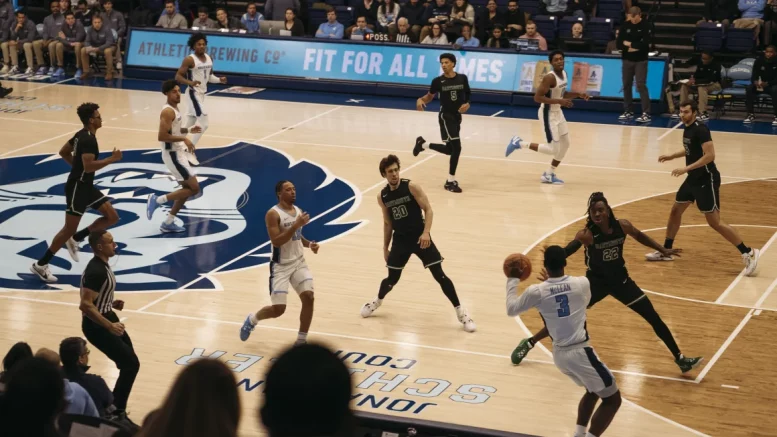On Tuesday, members of the Dartmouth College men’s basketball team made history by becoming the first college athletes to vote in favor of joining a union, marking a significant milestone in the evolving landscape of collegiate sports. The vote, which resulted in a 13-2 majority in favor of the union, was confirmed by the National Labor Relations Board (NLRB), responsible for overseeing union representation votes for private employers.
However, despite the affirmative vote, the establishment of a union for the team members is not guaranteed. Dartmouth College has announced its intention to challenge the NLRB’s decision to recognize the players as employees eligible to join a union. Dartmouth President Sian Beilock emphasized the institution’s stance, asserting that the athletes are considered students rather than employees, as the college does not provide athletic scholarships.
Nevertheless, a regional director of the NLRB determined that the players meet the criteria of employees due to Dartmouth’s control over their work and the compensation they receive. This compensation includes various benefits such as room and board, equipment, tickets to games, access to medical professionals, and academic support, as outlined in the NLRB’s findings.
The implications of Tuesday’s vote extend beyond Dartmouth College, potentially reshaping the landscape of college sports in the United States, particularly in revenue-generating sports like football and basketball. Data compiled by the Department of Education indicates that Division I schools reported revenue of $7.9 billion from these two sports alone during the last academic year, contributing to the overall revenue of nearly $17.5 billion generated by Division I athletics.
While Dartmouth basketball may not generate revenue on the scale of major sports powerhouses, the vote underscores shifting attitudes towards compensating college athletes. Former University of Michigan coach Jim Harbaugh endorsed the idea of union representation for athletes, advocating for them to receive a share of the revenue generated by college sports programs.
The NCAA’s longstanding stance against compensating student-athletes, aside from scholarships and stipends, has faced challenges, particularly following a unanimous Supreme Court ruling in 2021. This ruling found NCAA rules prohibiting compensation for student-athletes to be in violation of antitrust laws, opening the door for greater compensation opportunities.
The Dartmouth basketball team’s vote to unionize was met with enthusiasm by union leaders, reflecting a broader trend of union organizing in colleges and universities across various sectors. With over 40,000 students belonging to unions formed in the last two years alone, college campuses have emerged as significant hubs of union activity, signaling a growing movement to advocate for the rights and well-being of student employees.

